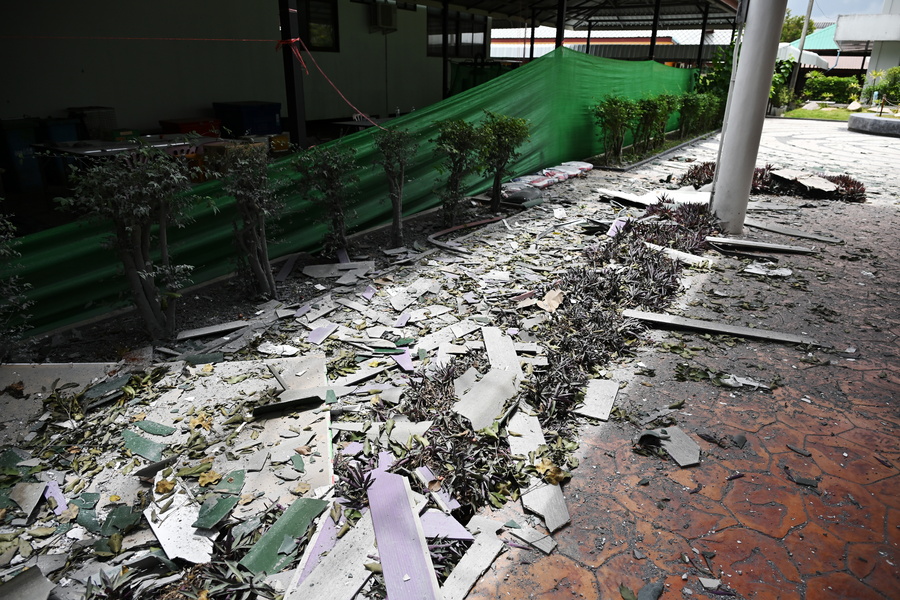Thailand and Cambodia are facing their worst battles in more than a decade, exchanging fire at their disputed border, with at least 16 dead and tens of thousands displaced. Tensions began escalating between the Southeast Asian neighbors in May, following the killing of a Cambodian soldier during a brief exchange of fire, and have gradually intensified since then, causing diplomatic disputes and now armed conflicts.
Thailand-Cambodia: How the conflict climate has developed
Fighting broke out between the two countries early Thursday along a disputed area bordering an ancient temple, rapidly expanded to other regions, and firefights continued for a second consecutive day. Thailand recalled its ambassador from Phnom Penh on Wednesday and expelled Cambodia’s envoy, in response to a second Thai soldier losing a limb from a landmine that Bangkok claimed had been recently planted by opposing forces. Cambodia called this claim unfounded.
Both sides have engaged in mutual accusations, while the clashes have cost the lives of at least 15 civilians, most of them on the Thai side.
Cambodia has deployed rocket launchers, which Thailand says have been used to target civilians, while Thai armed forces sent American F-16 fighter jets, using them to bomb military targets across the border.
About 130,000 people have been forced to evacuate from Thailand’s border areas to safer locations, while approximately 12,000 families on the Cambodian side have moved away from the front lines, according to local authorities.
The history of the dispute
Thailand and Cambodia have disputed sovereignty over various undemarcated points along their 817 km (508 miles) land border for more than a century, which was first mapped by France in 1907 when Cambodia was its colony.
In 2000, the two countries agreed to establish a Joint Border Commission to peacefully address claims, but progress toward resolving differences was minimal.
The claims have increased tension between the two countries, particularly in 2003 when riots burned the Thai embassy as well as Thai businesses in Phnom Penh over a comment by a Thai celebrity questioning Cambodia’s jurisdiction over the Angkor Wat temple, which is listed as a UNESCO World Heritage site.
At the center of the dispute between the two countries is an 11th-century Hindu temple called Preah Vihear, or Khao Phra Viharn in Thailand, with both Bangkok and Phnom Penh claiming historical ownership.
The International Court of Justice in The Hague awarded the temple to Cambodia in 1962, but Thailand continued to claim the surrounding land.
Tension escalated in 2008 after Cambodia attempted to register the Preah Vihear temple as a UNESCO World Heritage site, leading to clashes for several years. Two years later, Cambodia requested clarification of the 1962 decision and the International Court of Justice ruled in its favor again, saying that the land around the temple was also part of Cambodia.
Despite the historical rivalry, the current governments of Thailand and Cambodia maintain diplomatic relations. However, nationalist sentiment has increased in Thailand after conservatives last year challenged the government’s plan to negotiate with Cambodia for joint exploration of energy resources in undemarcated maritime areas.
Tensions also rose in February when a group of Cambodians accompanied by troops sang their national anthem at another ancient Hindu temple claimed by both countries, Ta Moan Thom.
An attempt by then-Thai Prime Minister Paetongtarn Shinawatra, daughter of Thaksin, to de-escalate the situation in a phone call last month with Cambodian President Hun Sen, failed.
In the communication, the 38-year-old prime minister appeared to criticize a Thai army commander, causing public outrage among a group of senators, which led to her removal by court decision on July 1st.
Resolution efforts
After the May 28th clash, both countries promised to reduce tension, prevent more conflicts, and seek dialogue.
The neighbors have issued diplomatically worded statements committing to peace.
Thailand has not recognized the International Court of Justice decisions on the dispute and wants to resolve it bilaterally.
Following Thursday’s clashes, Cambodia has appealed to the United Nations Security Council, urging the body to convene a meeting to stop what it describes as “unprovoked and premeditated military aggression” by Thailand.
Thailand, on the other hand, wants to resolve the conflict through bilateral negotiations but says talks can only happen after Cambodia ends the cycle of violence.




